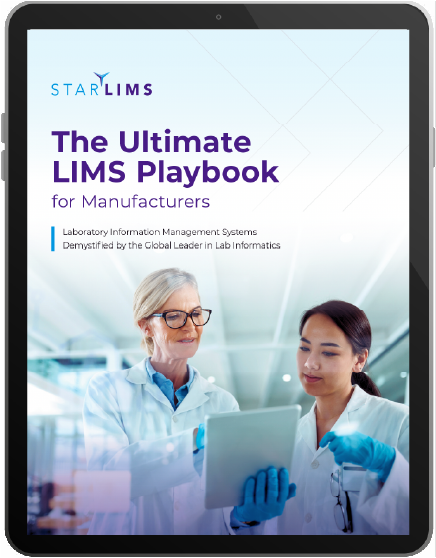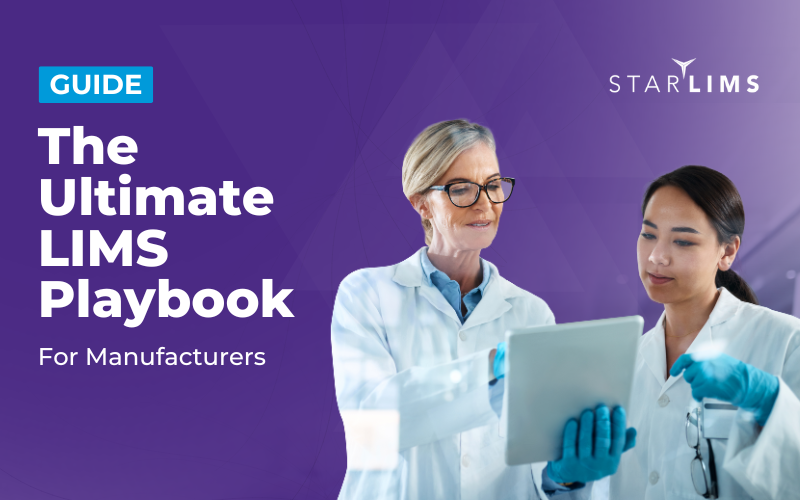About This Playbook
Welcome to the Ultimate LIMS Playbook for Manufacturers. This is the definitive guide for mastering laboratory information management systems (LIMS), how to select the best LIMS for your quality and manufacturing laboratories, and best practices for the implementation process.
Whether your organization operates in pharmaceuticals, biotechnology, agrochemical, chemical, food & beverage, oil & gas, metals & mining, or contract development & manufacturing testing, managing lab operations is inherently complex. Intricate workflows, manual processes, and isolated data elevate risk and substantially lengthen the time required to process laboratory testing. The consequence? Increased lab and quality control costs and delays in product release.
LIMS technology empowers organizations to streamline lab workflows, reduce manual effort, and unify data, helping them optimize their labs for precision and accelerated performance.
As pioneers in the LIMS and laboratory informatics space, STARLIMS was founded with the goal of providing robust software solutions that help laboratories execute their product quality sampling strategies, manage their information needs, enable regulatory compliance, and promote laboratory and enterprise collaboration. With nearly four decades of knowledge, we created this playbook to impart the invaluable insights we’ve gleaned from the industry and our customers. If you’re looking to digitally transform your lab, use this playbook as both support and a launchpad on your journey toward selecting the best LIMS for your organization.
This Guide Supports the Following Industries
- Life Sciences
- Contract Development & Manufacturing Organizations (CDMOs)
- Food & Beverage
- Chemical
- Oil & Gas
- Agrochemical
- Contract Testing Labs
- Metals & Mining
- Consumer Goods
What Is a LIMS?
A Laboratory Information Management System (LIMS) is software purpose-built to improve
lab productivity and efficiency by maintaining all data associated with samples, experiments, processes, and workflows. The technology provides a centralized, consolidated point-of-collaboration throughout the entire testing process, delivering a holistic view of laboratory operations and enabling teams to accelerate deployment and time-to-value. LIMS can also integrate with lab instruments and devices, to support completeness of data capture and minimize transcription errors. With a LIMS, laboratories can automate workflows, minimize manual tasks, and, for organizations in highly regulated industries, it can simplify compliance and quality management while making your laboratory more efficient and precise.
The Benefits of Implementing a LIMS
Improved Information Management: A LIMS centralizes lab data by integrating with lab
equipment, instruments, and systems, allowing teams to manage workflows and samples
throughout their entire lifecycle.
Increased Efficiency and Productivity: By digitalizing your data, lab personnel can access work
at the bench and beyond, collaborate with colleagues, and expedite batch release, all while helping you maintain a manageable cost base.
Support for Compliance and Regulatory Requirements: With features like electronic signatures
and audit trails, LIMS enable teams with fully traceable testing processes and samples.
Key LIMS Features
- Sample tracking and management
- Workflow automation and process optimization
- Laboratory equipment and instrumentation management and integration
- Inventory management
- Reporting, analytics, and visualization tools


